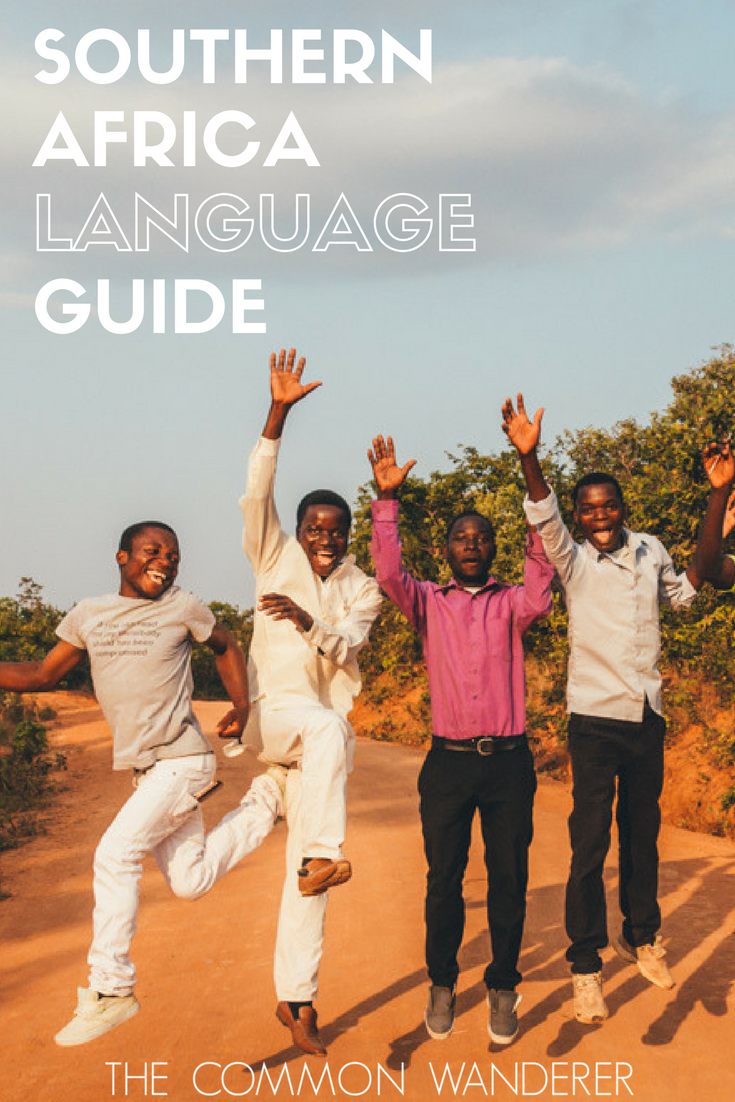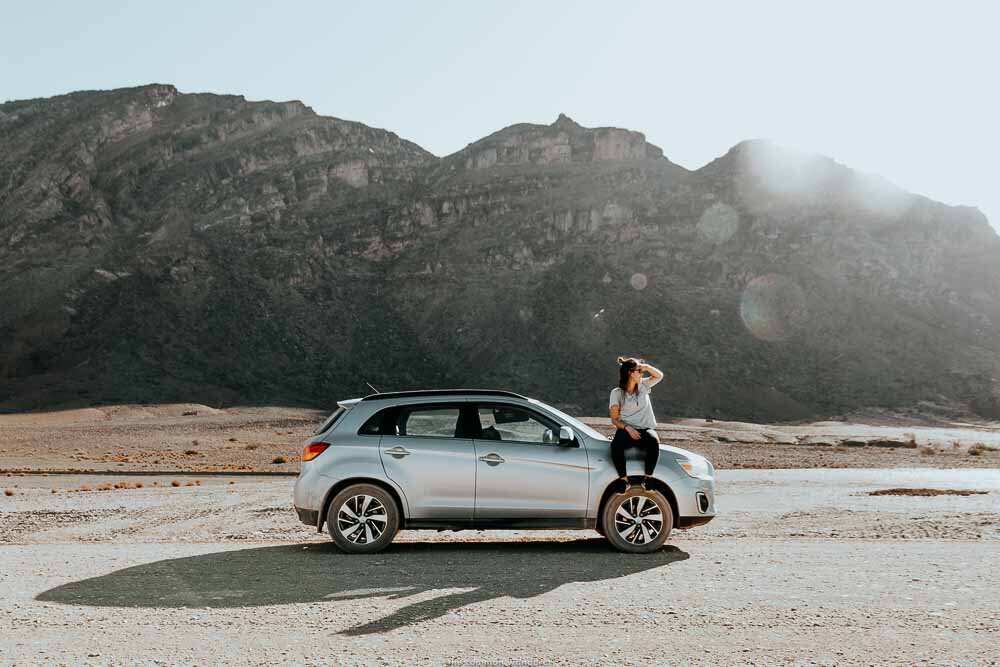A traveller's guide to languages in southern Africa
We think that learning the language essentials of each destination we visit is essential!
That's why we've put together a simple and easy-to-follow travellers guide to languages in Southern Africa, where an estimated 1,500 - 2,000 native languages are spoken.
The wild, endless plains of Namibia’s deserts, the rugged coastlines of South Africa, the roar of Victoria Falls in Zambia and Zimbabwe, and the oasis of Botswana’s Okavango Delta; Southern Africa is wildly diverse, and strikingly beautiful. But perhaps nothing here is as diverse as the thousands of languages in southern Africa, each as varied and vibrant as the many communities and countries they belong to.
In southern Africa alone, an estimated 1,500-2,000 native languages are spoken across every single day.
In addition to that, when the Colonial European empires carved the entire African continent up between them, they introduced English, French, Dutch, Portuguese, and German too.
So what does this mean for you as a traveller in Southern Africa?
Well, for the most part it means you could backpack your way from Lilongwe to Cape Town, right through multiple diverse countries, and never pass through one where English isn’t recognised as an official language.
You could even rely solely upon your own mother tongue to get by - as most people will have at least a basic understanding of English.
You could do that – but take it from us, the best experiences in Africa happen when you step outside your comfort zone and stumble through some unfamiliar phrases with the smiling storekeeper you’ve just met.
We had so many wonderful experiences learning (or at least trying) the local languages, and it helped us understand the local culture in the process.
So you know your lekker from your nnyaa, here’s our traveller's guide to languages in Southern Africa.
CHICHEWA TO XHOSA - OUR GUIDE TO LANGUAGES IN SOUTHERN AFRICA
-
BOTSWANA
Official Languages | English
National Language | Setswana
Left over from years of colonial rule, English is now the official language of Botswana and is spoken widely in most urban or tourist areas. Alongside this, almost 90% of locals in Botswana speak Setswana (also known as Tswana) as their mother tongue.
The word ‘pula’ holds special significance for locals in semi-arid Botswana. Literally translated to ‘let there be rain’ (a blessed event in this dry country), it’s also the name given to the local currency. In other contexts it means ‘shield’ and has become the enthusiastic cheer for football crowds or village gatherings.
Hello
Dumelarra(man) / Dumelamma(woman)
How are you?
O tsogile jang, Le kae, or Wareng?
Yes
Ee
No
Nnyaa
Thank You
Keitumetseor Kealeboga
Goodbye
Tsamaya sentle (said to the person leaving)
OR
Sala sentle (said when you’re the one leaving)
learn more: how to travel safely in southern africa
-
MALAWI
Official language | English
National language | Chichewa
Other important languages | Chinyanja, Chiyao and Chitumbuka
English is commonly used and understood in Malawi, particularly in tourist areas.
For a more authentic experience - and the chance to impress the extremely friendly locals with your efforts - try the following Chichewa phrases:
Hello
Moni [moa-nee]
How are you?
Mulibwanji [ moo-ley-bwan-gee]
Yes
Eya [eh-ya]
No
Ayi [ayee]
Thank You
Zikomo [zee-koh-moh]
Goodbye
Ndapita [n-da-pee-tah]
-
MOZAMBIQUE
Official Language | Portuguese
Other important languages | Around 43 (mostly Bantu) languages, the most common including: Lomwe, Makhuwa, Ndau and Tsonga.
Inherited from colonial times and spoken by around 50% of the population, Portuguese is both the official language of Mozambique, and the most widely spoken.
When first meeting someone in Mozambique it’s tradition to finish the conversation with this lovely, hopeful phrase ‘estamos juntos’: we are together.
Hello
Bomdia (bohm-dee-ya) - Good morning
Boatarde (bo-ah-tar-dee) - Good afternoon
Boanoite (bo-ah-noyteh) - Good night
How are you?
Como Esta (co-mow-ehs-tah)?
Yes
Sim
No
Não (now)
Thank You
Obrigado (ohb-ree-gah-do)
Goodbye
Adeus
african travel: everything you need to know about travel insurance
-
NAMIBIA
Official Language | English
Other important languages spoken | Oshiwambo, Khoekhoe, Afrikaans, Kwangali, Herero
Namibians commonly speak two or three (or more!) languages; English, a native tongue like Oshiwambo (spoken by 49% of the population), and either German or Afrikaans.
In fact, due to the country’s colonial history you’ll hear German pretty regularly around areas like Swakopmund, while Afrikaans often functions as the lingua franca between locals.
Due to their proximity (and at one point, a shared history as one country), many South African slang words have also crept their way into Namibian conversation.
If you arrive at a social gathering and your host asks if you’d like a koue enetjie, answer ‘ja!’, and wait as they bring you out a nice, cold beer.
more on namibia: the 9 places you absolutely must visit in namibia
-
SOUTH AFRICA
Official Languages | Afrikaans, English, Zulu, Xhosa, Ndebele, Venda, Swati, Sesotho, Sepedi, Tsonga and Tswana.
With over 11 official languages (and a few more unofficial) South Africa really is the rainbow nation!
English is the lingua franca when it comes to business, politics, and media, but out on the streets you’re far more likely to hear a heady mix of tribal mother tongues, English, and Afrikaans (derived from 17th century colonial Dutch).
As a tourist, all you'll really need is English to get by – but if you can whip out one of these phrases you're sure to impress all your new South African buddies!
Jol [jowl]
have fun, party, or club. For example, “Last night was a jol!”
Braai [Br-eye]
A method of barbecuing meat over hot coals, generally seen as a social gathering
E.G. “Come over, we’re having a braai!”
Lekker [leh-kerr]
Good, cool, attractive, tasty. “Man, that braai was lekker!”
understanding africa: is south africa safe for tourists?
-
ZAMBIA
Official Language | English
Local languages | 72
English, the language of the colonial period, is most commonly used for business and education and is widely spoken throughout all urban and tourist areas.
When meeting a Zambian for the first time, you should always greet the person formally by asking how they are. For example:
Person 1 | “Muli Bwanji?” – How are you?
Person 2 | “Bueno. bwanji?” - OK, how are you?
Person 1 | “Bueno!” – OK.
Other important languages include Bemba (the mother tongue spoken by over half the population), Tonga, Nyanja (similar to Chichewa), and Lozi.
Hello
Shani
How are you?
Uli Shani?
Yes
Ee
No
Awe
Thank You
Natotela
Goodbye
Shalapo
southern africa | here's 13 places you need to visit
-
ZIMBABWE
Official Languages | 16 - English, (chi)Shona, (isi)Ndebele, Chewa, Chibarwe, Kalanga, Tsoa, Nambya, Ndau, Shangani, Shona, Sotho, Tonga, Tswana, Venda, Xhosa
While the mother tongue of most people in Zimbabwe is either chiShona (most widely spoken) or isiNdebele (similar to Zulu), most business and media is conducted in English.
You may also come across a mix of isiNdebele, chiShona, and English spoken by locals in some areas. This is Chilapalapa, and while not recognised as an official language, was in common usage (particularly in mining areas) during colonial times. Despite being seen historically as the ‘language of the colonial oppressor’, it has enjoyed a revival in recent times.
Some useful phrases in Zimbabwe include:
Tatenda
A shorter way of saying thank you. Also a very popular name in Zimbabwe
Shamwari
Don’t know someone’s name? Shamwari means ‘friend’, and is always used if you don’t know somebody.
Everyone has a shamwari in Zimbabwe!
Kunjan
Hi there
Mangwanani
good morning
Masikati
good afternoon
-
TRAVEL INSURANCE FOR AFRICA
Travel insurance is as essential to travel as buying a plane ticket, backpack or accommodation.
You simply shouldn’t leave home without it.
If you need any convincing, read our guide to travel insurance - which also happens to include Mark's tale of being bitten by a snake in rural Malawi! His story is proof that the unexpected really does happen.
There are many great travel insurance providers in the marketplace, and you should also do your research to find the best deal for you and your gear, however we personally travel with World Nomads.
-
TRAVEL BETTER WITH THESE ESSENTIAL POSTS
AIRBNB GUIDE | Our essential guide to getting the best out of Airbnb
TRAVEL INSURANCE | Don’t leave home without travel insurance (seriously, don’t!). Click here to get the best deals with World Nomads, our trusted travel insurance provider
PHOTOGRAPHY | Love our photography? Wondering what gear we use to get all of our photos around the world?
Click here to view our detailed photography gear guide, as well as our top travel photography tips!
RESPONSIBLE TRAVEL | Responsible travel is important. REALLY IMPORTANT.
Learn our top responsible travel tips to help you, your family and friends travel more consciously around the globe
ECO FRIENDLY PACKING ESSENTIALS | Don’t leave home without our favourite eco-friendly travel essentials

















